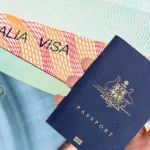Canada is one of the most sought-after destinations for immigrants worldwide, thanks to its diverse culture, robust economy, high quality of life, and welcoming immigration policies. Over the years, Canada has continued to attract skilled workers, students, and families looking to build a new life in a country known for its natural beauty and opportunities. The Canadian government offers various immigration pathways to facilitate this influx, making it easier for individuals from different backgrounds to find a route that best suits their circumstances and qualifications.
In this blog post, we will explore some of the easiest ways to immigrate to Canada, focusing on the most popular and accessible programs. These include the Express Entry system, Provincial Nominee Programs (PNPs), family sponsorships, and study permits leading to permanent residency. By understanding these pathways, you can make an informed decision on the best route for you and your family to embark on your Canadian journey.
1. Express Entry System
The Express Entry system is one of the most efficient and popular ways to immigrate to Canada. Launched in 2015, this points-based system manages applications for three federal economic immigration programs: the Federal Skilled Worker Program, the Federal Skilled Trades Program, and the Canadian Experience Class. Candidates create an online profile and are scored based on the Comprehensive Ranking System (CRS), which considers factors such as age, education, work experience, and language proficiency.
The highest-ranking candidates in the Express Entry pool are invited to apply for permanent residency through regular draws conducted by Immigration, Refugees, and Citizenship Canada (IRCC). To increase your chances of receiving an invitation, it is essential to maximize your CRS score by improving your language skills, gaining more work experience, or obtaining a valid job offer from a Canadian employer.
2. Provincial Nominee Programs (PNPs)
Provincial Nominee Programs (PNPs) allow Canadian provinces and territories to nominate individuals who wish to immigrate to Canada and are interested in settling in a specific region. Each province and territory has its own PNP with unique eligibility criteria tailored to meet its economic and labor market needs. By receiving a provincial nomination, candidates can earn additional points towards their Express Entry profile or apply directly for permanent residency.
Some popular PNPs include the Ontario Immigrant Nominee Program (OINP), the British Columbia Provincial Nominee Program (BC PNP), and the Alberta Immigrant Nominee Program (AINP). These programs often target specific occupations in demand, making it crucial to research and apply to the PNP that aligns with your professional background and experience.
3. Family Sponsorship
Family reunification is a cornerstone of Canada’s immigration policy. The Family Sponsorship program allows Canadian citizens and permanent residents to sponsor their spouses, common-law partners, dependent children, parents, and grandparents to become permanent residents of Canada. Sponsors must meet certain eligibility criteria, including the ability to support their relatives financially and ensure they do not require social assistance from the government.
The process for family sponsorship involves submitting an application to IRCC, which includes proving the genuineness of the relationship and meeting all necessary financial and legal requirements. Successful applicants can enjoy the benefits of living in Canada with their loved ones while contributing to the country’s social and economic fabric.
4. Study Permits and Post-Graduation Work Permits (PGWP)
Canada is home to some of the world’s top educational institutions, making it a popular destination for international students. Obtaining a study permit allows you to pursue your education in Canada and gain valuable Canadian experience. Upon graduation, international students may be eligible for a Post-Graduation Work Permit (PGWP), which allows them to work in Canada for up to three years.
This work experience can be a stepping stone to permanent residency through programs such as the Canadian Experience Class or Provincial Nominee Programs. Additionally, Canadian education and work experience can significantly enhance your Express Entry profile, increasing your chances of receiving an invitation to apply for permanent residency.
5. Start-Up Visa Program
The Start-Up Visa Program targets innovative entrepreneurs who have the potential to build businesses in Canada that can create jobs for Canadians and compete globally. To qualify, you must have a qualifying business, secure a commitment from a designated organization (such as a venture capital fund, angel investor group, or business incubator), meet the language proficiency requirements, and have sufficient settlement funds.
This program offers a unique opportunity for entrepreneurs to gain permanent residency while contributing to Canada’s economic development and innovation landscape. By fostering a supportive environment for start-ups, Canada continues to attract talented individuals with innovative ideas and entrepreneurial spirit.
Conclusion
Canada’s diverse immigration pathways provide numerous opportunities for individuals and families to make a new home in this vibrant country. Whether you are a skilled worker, student, entrepreneur, or family member of a Canadian resident, there is a program designed to help you achieve your goal of immigrating to Canada. By understanding and navigating these pathways, you can embark on a successful journey to becoming a part of the Canadian mosaic. For more detailed information and personalized assistance, consult official resources such as the Immigration, Refugees, and Citizenship Canada (IRCC) website and professional immigration consultants.

